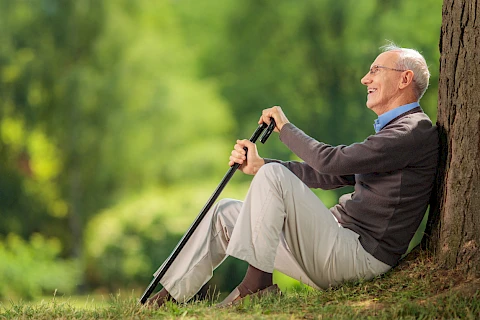
Staying independent can become increasingly challenging with age. However, being able to handle daily tasks and make personal decisions empowers seniors to lead fulfilling lives on their own terms. Embracing strategies for preserving autonomy while accepting support when needed will help you thrive as you navigate your golden years.
The Benefits of Independence in Aging
More than just a desirable state, independence has multiple benefits for seniors. Maintaining independence in aging can improve mental health by reducing feelings of helplessness and depression. There is a sense of purpose and fulfillment in being able to take care of oneself.
Active and independent seniors tend to be in better physical health. Being self-sufficient boosts self-esteem and confidence, making seniors feel more competent. Seniors can also pursue hobbies, enjoy social activities, and manage their routines better when they maintain independence, resulting in a better quality of life.
Challenges to Maintaining Independence
Aging presents challenges that make it harder to stay autonomous. Physical limitations such as decreased mobility, strength, and stamina will make it harder to perform daily tasks. Memory issues and cognitive decline can complicate decision-making and daily living for seniors. Loneliness is also a significant barrier to independence, as elderly individuals may lack the social support they once had. There are also safety concerns. Falls and accidents are more common in older adults, making it unsafe for some to live alone without assistance.
Strategies for Preserving Autonomy
Seniors can maintain independence in their later years with the right strategies.
- Physical Activity: With the necessary approval of healthcare providers, low-impact exercises like walking, swimming, and yoga can keep seniors active and mobile. Canes, walkers, and other mobility aids can help older adults move around safely and independently.
- Mental Stimulation: Mentally stimulating activities like puzzles and games can keep the mind sharp. Enrolling in courses or picking up new hobbies can provide mental stimulation and a sense of accomplishment.
- Social Connection: Participating in community events or joining clubs can help seniors stay socially active. Digital tools like video calling and social media can help seniors maintain relationships with family and friends.
- Home Modifications: Safety enhancements can go a long way to preserving autonomy. Installing grab bars, non-slip mats, and good lighting can reduce the risk of falls. Making home modifications like ramps and stairlifts can make it easier for seniors to navigate their homes.
Accepting Necessary Support
Maintaining independence in aging doesn't mean doing everything alone. It's about knowing when and how to seek help. Many seniors who don't want to burden their loved ones might find this challenging. However, asking for support is a sign of strength, not weakness. Communicating openly with family and friends about needs and preferences helps.
Balancing independence with necessary support ensures you can live comfortably while maintaining a sense of control. Professional caregivers can provide valuable assistance tailored to your needs, helping with daily tasks while respecting your autonomy. This collaborative approach can create an environment that promotes independence and safety, enhancing overall quality of life.
Senior Helpers Helps Seniors to Live Independently
Prioritizing independence in aging ensures seniors can enjoy their retirement years with confidence, comfort, and a sense of purpose. Do you thrive in your lifestyle but could benefit from assistance with day-to-day activities? If you’re looking to maintain independence while living at home, contact us at Senior Helpers Northwest Atlanta. Serving Atlanta, Austell, Lithia Springs, Mableton, and Smyrna, we’re here to help you safely live your life on your terms.